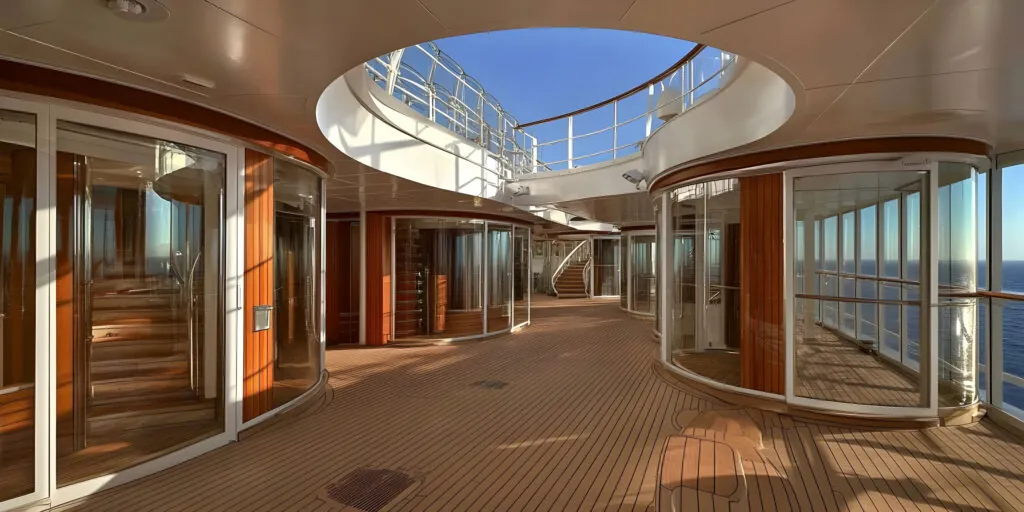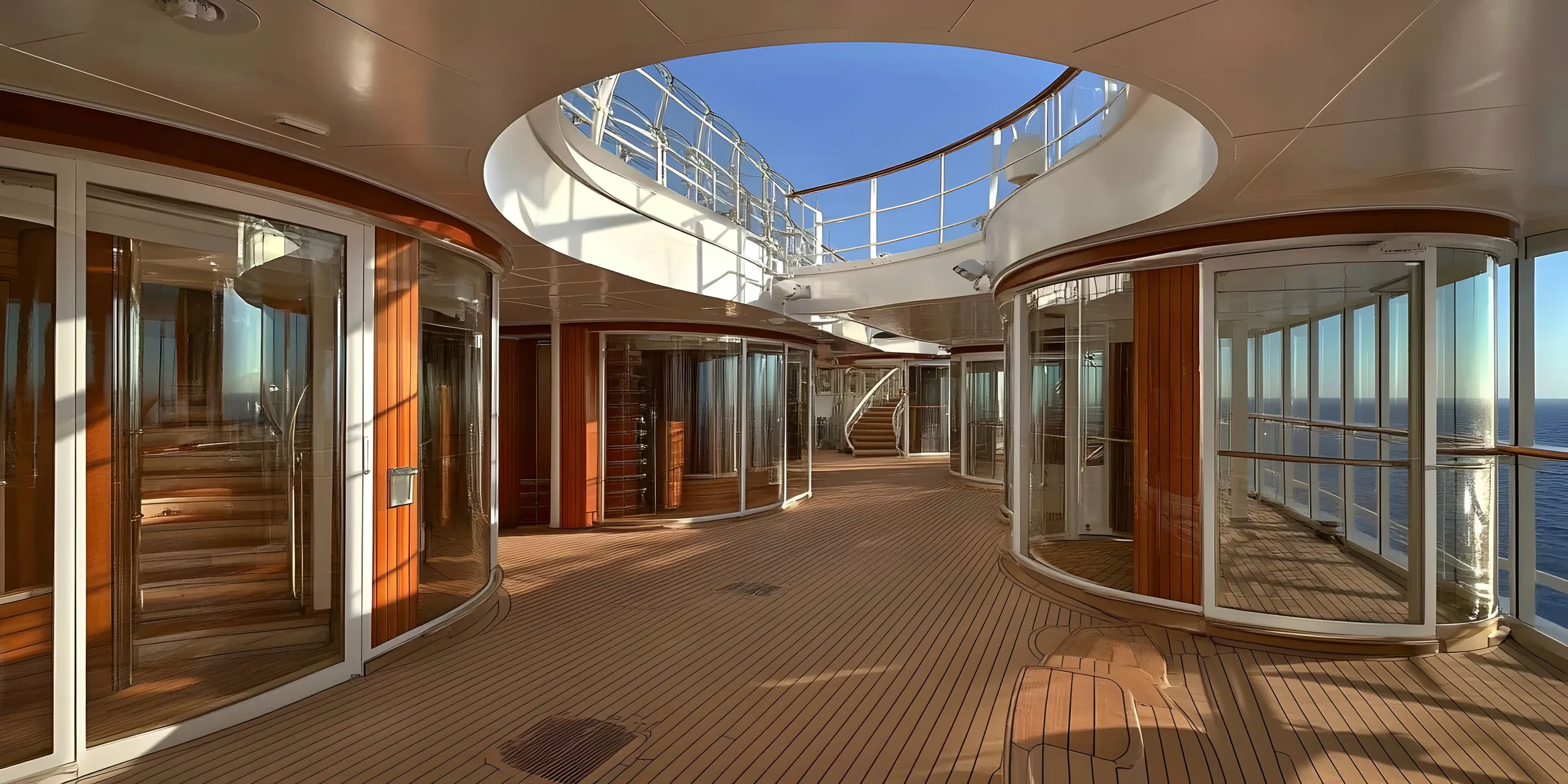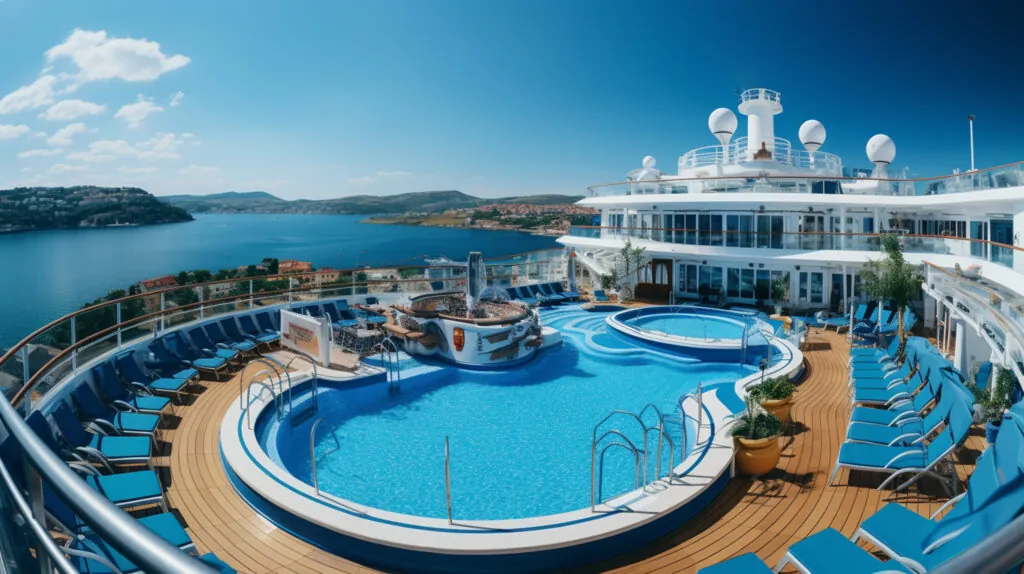Elevators and escalators are essential features on modern cruise ships, enabling passengers to move between decks safely and conveniently. But when these systems fail, they can become dangerous, even deadly. Passengers who suffer injuries due to elevator or escalator malfunctions often face serious consequences — physically, emotionally, and financially.

If you or someone you love has been hurt in this kind of accident while at sea, it’s important to understand your legal rights, what maritime law says, who can be held responsible, and how to seek fair compensation. This comprehensive guide walks you through every step — from identifying liable parties to pursuing legal claims under admiralty law.
Common Elevator and Escalator Accidents on Cruise Ships
Cruise ships are essentially self-contained cities, complete with mechanical transportation systems like elevators and escalators to facilitate movement across multiple decks. With thousands of passengers using these systems daily, proper maintenance and operation are absolutely critical.
Unfortunately, when maintenance is neglected or systems are defective, mechanical failures can result in serious accidents.
Elevator Malfunctions
Elevator-related injuries are more common than many passengers realize. These incidents often involve technical failures such as:
- Sudden and unexpected drops between floors
- Doors opening without an elevator present
- Faulty sensors that allow the elevator to move with doors still open
- Malfunctioning emergency brakes or alarms
- Entrapment during power outages or mechanical shutdowns
Injuries from these malfunctions can be catastrophic, including broken bones, spinal trauma, concussions, lacerations, and psychological stress from being trapped for long periods.
Escalator Hazards
Escalators on cruise ships pose a different but equally dangerous set of risks. The movement of the stairs combined with high foot traffic and variable sea conditions can create hazards that are particularly threatening to older adults and children.
Common escalator accidents include:
- Slips or falls due to wet or slick steps
- Entrapment of clothing, shoelaces, or personal items in the mechanism
- Mechanical failure causing the escalator to suddenly speed up or stop
- Step misalignment that causes passengers to trip
- Inadequate safety signage or broken emergency stop buttons
These incidents often result in injuries to the knees, ankles, head, or back, and can require emergency care or even long-term rehabilitation.
Who Is Liable for These Injuries?
Understanding liability in these cases is critical to successfully pursuing a claim. Unlike a hotel or store on land, injuries aboard cruise ships fall under a unique combination of contract law, maritime law, and tort law. The party or parties who may be held liable include the cruise line itself, third-party maintenance providers, and in some cases, the manufacturer of the elevator or escalator.
The Cruise Line’s Duty of Care
Cruise lines have a legal obligation, known as a “duty of care,” to ensure that their premises are safe for passengers. This includes keeping all mechanical transport systems, such as elevators and escalators, in good working order through regular maintenance and inspections.
When a cruise line fails to:
- Inspect and maintain its equipment properly
- Warn passengers of potential dangers
- Act quickly to repair malfunctioning systems
- Employ qualified personnel to manage these systems
…it may be found negligent. In these situations, the cruise line may be held financially responsible for the resulting injuries.
Third-Party Maintenance Providers and Manufacturers
In some cases, elevator or escalator systems are serviced by third-party contractors hired by the cruise company. If an investigation reveals that improper maintenance or repairs contributed to the malfunction, that third-party vendor could be partially or fully liable.
Similarly, if the equipment itself was defective due to design flaws or manufacturing errors, the manufacturer could be held accountable under product liability law.
Determining liability often requires a legal investigation, expert testimony, and review of maintenance logs — all things an experienced maritime injury attorney can help with.
Maritime Laws That Govern Cruise Injuries
Cruise ship injuries are governed not by standard personal injury laws, but by maritime or admiralty law. This body of law oversees legal matters that take place on navigable waters, including accidents on cruise ships.
Understanding these legal principles is vital when filing a claim, because they affect where, when, and how you can sue a cruise line.
Admiralty Law Basics
Under maritime law, cruise operators are required to exercise reasonable care in protecting passengers from harm. If a passenger is injured due to the cruise line’s negligence, they may be entitled to compensation for damages such as medical bills, pain and suffering, and lost wages.
Unlike land-based personal injury claims, however, maritime claims often involve stricter deadlines, limited venues for filing lawsuits, and unique contractual limitations built into the cruise ticket itself.
Jurisdiction and Foreign-Flagged Ships
Most major cruise lines register their ships under foreign flags — often in countries like Panama, the Bahamas, or Liberia — for tax and regulatory reasons. This foreign registration can significantly affect the jurisdiction in which a lawsuit must be filed.
Additionally, most cruise tickets include a “forum selection clause,” which mandates that lawsuits be filed in a specific location, often in Florida, regardless of where the cruise departed or where the injury occurred.
This means that even if you’re a California resident injured while sailing through the Caribbean, you might still be required to bring your case to court in Miami.
Filing a Personal Injury Claim Against a Cruise Line
If you’ve been injured in an elevator or escalator incident aboard a cruise ship, it’s important to act quickly and follow the correct procedures. Here’s a breakdown of the steps you should take:
Step 1: Report the Incident Immediately
Notify ship security, guest services, or medical staff as soon as the accident occurs. Request a copy of the official incident report and confirm it has been documented.
Step 2: Gather Evidence
Take photographs or videos of the elevator/escalator, your injuries, and any nearby safety hazards (such as missing signage or wet floors). If possible, collect contact information from any witnesses who observed the event.
Step 3: Seek Medical Attention
Visit the ship’s infirmary to get immediate care. Upon return to shore, schedule a comprehensive medical evaluation and keep all medical records, including treatment plans, prescriptions, and diagnoses.
Step 4: Retain Legal Representation
Contact a maritime personal injury attorney with experience in cruise ship litigation. These legal professionals understand the complexities of maritime law, contract restrictions, and jurisdictional limitations that apply to cruise injury claims.
What Compensation Could You Receive?
The compensation available in a cruise ship elevator or escalator injury case varies based on the severity of the injury and the extent of negligence involved. However, common forms of compensation include:
- Coverage for medical treatment (onboard and post-cruise)
- Costs of surgery, rehabilitation, and long-term therapy
- Lost wages from missed work due to injury
- Reduced earning capacity if your injury results in a long-term disability
- Pain and suffering, including emotional distress or trauma
- Compensation for reduced quality of life or permanent disability
In rare cases involving egregious misconduct, the court may also award punitive damages to penalize the cruise line or third-party contractor.
Why Cruise Ship Injury Cases Are Unique
Pursuing legal action after an injury aboard a cruise ship is not the same as filing a regular personal injury lawsuit. Three major differences make these cases more complex:
First, maritime jurisdiction means that the case may fall under admiralty law rather than state law. Second, contractual limitations within your cruise ticket often restrict your rights, limit damages, or reduce filing deadlines. Third, venue clauses may force you to file your lawsuit in a jurisdiction far from where you live or where the injury occurred.
For these reasons, injured passengers are strongly advised to seek legal help as soon as possible.
Frequently Asked Questions
Can I sue a cruise line if I’m injured by an elevator or escalator on board?
Yes, you can file a lawsuit against a cruise line if you’re injured due to an elevator or escalator malfunction. If your injury resulted from negligence—such as a failure to inspect, maintain, or repair the equipment properly—you may have a valid personal injury claim under maritime law. It’s essential to gather evidence and consult an attorney experienced in cruise ship injury cases to evaluate your specific situation.
What laws apply to accidents that happen on cruise ships?
Injuries that occur on cruise ships fall under maritime or admiralty law, which governs incidents that take place on navigable waters. These laws are different from traditional land-based personal injury statutes and include specific requirements for filing claims. Maritime law also often intersects with the contractual terms outlined in your cruise ticket, which may impose additional legal constraints.
How long do I have to file a claim after being injured on a cruise ship?
Most cruise lines include clauses in their passenger contracts that limit the time to file a personal injury claim to just one year from the date of the incident. This is significantly shorter than the statute of limitations for personal injury cases on land, which can be two to four years depending on the jurisdiction. Because of this limited window, it is crucial to take legal action as soon as possible after the injury.
Where do I have to file my lawsuit?
Many cruise lines require that lawsuits be filed in a specific location, often in the U.S. District Court for the Southern District of Florida in Miami, regardless of where the cruise departed or where the passenger resides. This is due to “forum selection clauses” included in most cruise ticket contracts. Your attorney can help you determine whether this clause applies to your case and how to proceed with filing in the proper jurisdiction.
What kind of compensation can I receive for a cruise ship injury?
If you’re injured on a cruise ship due to an elevator or escalator failure, you may be eligible for compensation that includes medical expenses, lost wages, pain and suffering, rehabilitation costs, and in some cases, future earnings if your injury results in long-term disability. The value of your claim will depend on the severity of your injuries, the degree of negligence involved, and the impact on your quality of life.
Final Thoughts: Know Your Rights and Protect Your Future
Accidents involving elevators and escalators aboard cruise ships are serious and often preventable. When cruise lines or their contractors fail to uphold safety standards, injured passengers deserve to hold them accountable.
Because of the complexity of maritime law and the specific limitations imposed by cruise contracts, it’s crucial to act quickly and consult with an experienced legal professional.
Contact The Cruise Injury Law Firm Today
If you’ve been injured on a cruise ship due to a faulty elevator or escalator, don’t wait. The window to file a claim is short, and delays can jeopardize your ability to recover compensation.
Speak to a qualified maritime injury attorney today to explore your options and begin building your case. The right legal team can guide you through the process, protect your rights, and help you receive the compensation you deserve.
Contact The Cruise Injury Law Firm today. Protect your future by taking action today.



